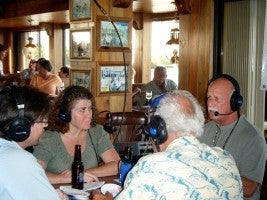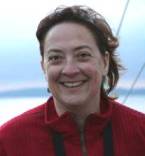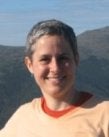 By Marcie Jones, Gulf of Mexico Program Coordinator, Environmental Defense Fund Oceans Program
By Marcie Jones, Gulf of Mexico Program Coordinator, Environmental Defense Fund Oceans Program
I recently attended Corpus Christi’s 10th Annual Earth Day – Bay Day Festival on behalf of EDF’s Gulf of Mexico Oceans program. I’d heard about the festival since I started at EDF last year, so I was really excited to share our catch share message with the 10,000+ attendees.

This annual event is hosted by The Coastal Bend Bays Foundation so that locals can learn about bays, estuaries, wetlands, native plants and animals, recycling and general conservation and environmental issues.
Our booth was full of information, facts and photos that showcased the problems with fisheries, explained why people should care, and described how catch shares can help. I met many interesting people, from age 5 to 85, asking about our work, commenting on the booth photos and picking up information such as our Oceans of Abundance report.
By the end of the day, I’d talked with hundreds about our work and had lots of ideas to improve the booth for next year.
Cool tidbit: At the beginning of the festival the Gulf Coast Indian Confederation blessed the grounds with a drum circle ceremony.










 It was my first time on the radio and Capt. Kelly and his co-host did an excellent job keeping it easy and fun. Capt. Kelly introduced me to his listening audience and encouraged recreational fisherman in the Keys to contact me to learn more about EDF’s fisheries work.
It was my first time on the radio and Capt. Kelly and his co-host did an excellent job keeping it easy and fun. Capt. Kelly introduced me to his listening audience and encouraged recreational fisherman in the Keys to contact me to learn more about EDF’s fisheries work.  Eight months after Hurricane Ike slammed Texas’ largest fishing community, Galveston is steadily recovering from the storm. Red snapper fishermen under IFQ management kept their businesses going because they could fish later in the year and lease quota to others when they couldn’t fish themselves.
Eight months after Hurricane Ike slammed Texas’ largest fishing community, Galveston is steadily recovering from the storm. Red snapper fishermen under IFQ management kept their businesses going because they could fish later in the year and lease quota to others when they couldn’t fish themselves.  The top government official for the nation’s fisheries today took a giant step in the right direction for the U.S. fishing industry and the oceans. At a speech in Boston, Dr. Jane Lubchenco, the administrator of the National Oceanic and Atmospheric Administration (NOAA) announced that she was creating a task force to develop a new policy on catch shares to ensure that they are fully considered when fishery management councils amend management plans.
The top government official for the nation’s fisheries today took a giant step in the right direction for the U.S. fishing industry and the oceans. At a speech in Boston, Dr. Jane Lubchenco, the administrator of the National Oceanic and Atmospheric Administration (NOAA) announced that she was creating a task force to develop a new policy on catch shares to ensure that they are fully considered when fishery management councils amend management plans.  Yesterday’s Boston Globe
Yesterday’s Boston Globe